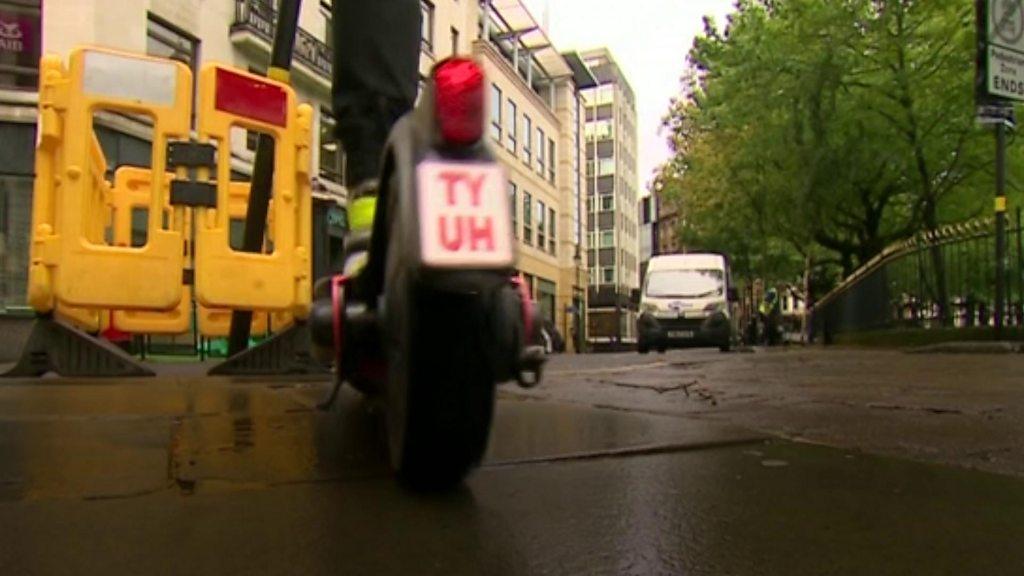Mixed reaction to Birmingham e-scooter pause
- Published
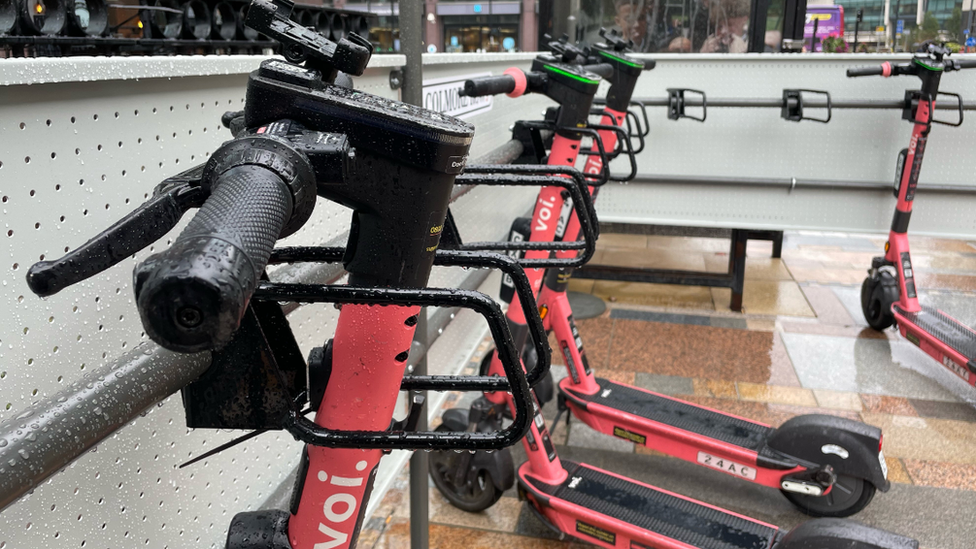
The trial in Birmingham has involved around 2,000 e-scooters
A pause to Birmingham's e-scooter trial has prompted a mixed response.
Transport for West Midlands (TfWM) announced on Friday its contract with Swedish company Voi had come to an end before procurement for a new contract could be completed.
Some people who oppose the use of the scooters in public areas on safety grounds have welcomed the stoppage.
But users of the e-scooters have complained it will add to travel times and costs.
E-scooters have been trialled across major cities in the UK since 2020.
TfWM told the Local Democracy Reporting Service it hoped there would be a "seamless transition" to a new contract, but unclear laws around e-scooter usage and delays procuring the new contract meant a continued scheme "has not been possible".
Birmingham had a fleet of about 2,000 e-scooters making an average of 30,000 rides a week.
Critics of the trial have argued e-scooters are dangerous, with many users riding without helmets, parking or riding on pavements, and abandoning the e-scooters without care for disabled or visually impaired pedestrians.
Marian Hall told the BBC: "They are very scary for elderly pedestrians like me when they are ridden on the pavement."
Keith Joyce said he had "experienced a couple of near misses", while Frederick Ridgeway added: "They are so fast and silent it's so easy to step out in front of."

Mayor Andy Street said lessons needed to be learnt before the trial moves forward
Both TfWM and Birmingham City Council have said they will "learn from current experience and continue to carefully consider the safety of the travelling public".
Andy Street, mayor for the West Midlands, said it was "vital we take this opportunity to evaluate and learn the lessons of the last two-and-a-half years before moving forward".
'Longer commute times'
Nick Stone, 26, a business analyst for BT, said he used the scooters everyday to make his commute easier and was "really frustrated" the scheme had been put on pause.
"Without Voi my commute will probably go from 25 minutes to 50 minutes," he said.
Alex Agnew, a civil servant and freelance graphic designer, said he had used the service since it launched in the city in 2020.
He said it was good not to have to wait for a bus and gave him a "completely predictable journey time of 15 minutes to the station".
Sheldon Tarpey, a senior strategist, said it was "another disappointing failure" for Birmingham's elected officials.
He said other in cities such as Oslo or Lisbon e-scooters are an "essential part of the transport mix".

Follow BBC West Midlands on Facebook, external, Twitter, external and Instagram, external. Send your story ideas to: newsonline.westmidlands@bbc.co.uk, external
Related topics
- Published28 February 2023
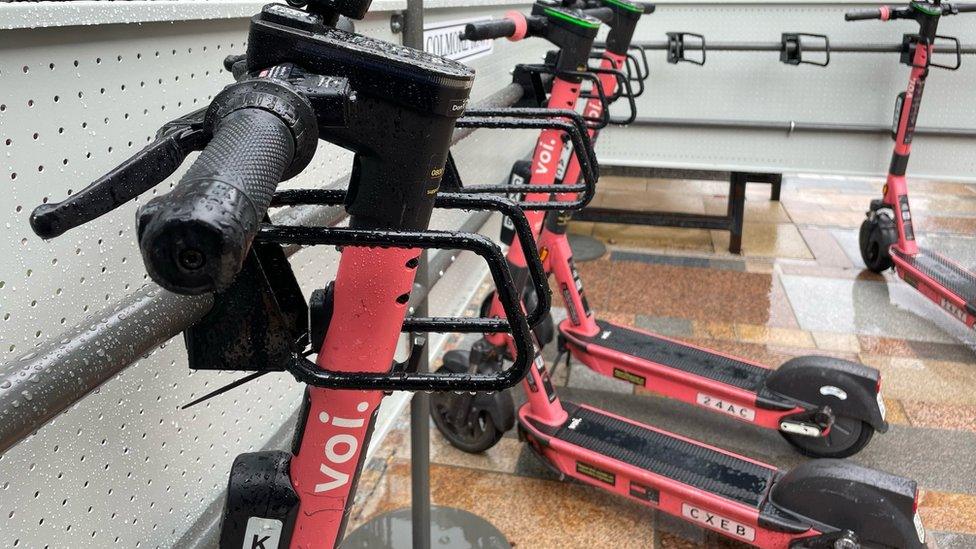
- Published24 February 2023

- Published20 February 2023

- Published30 January 2023

- Published6 December 2022
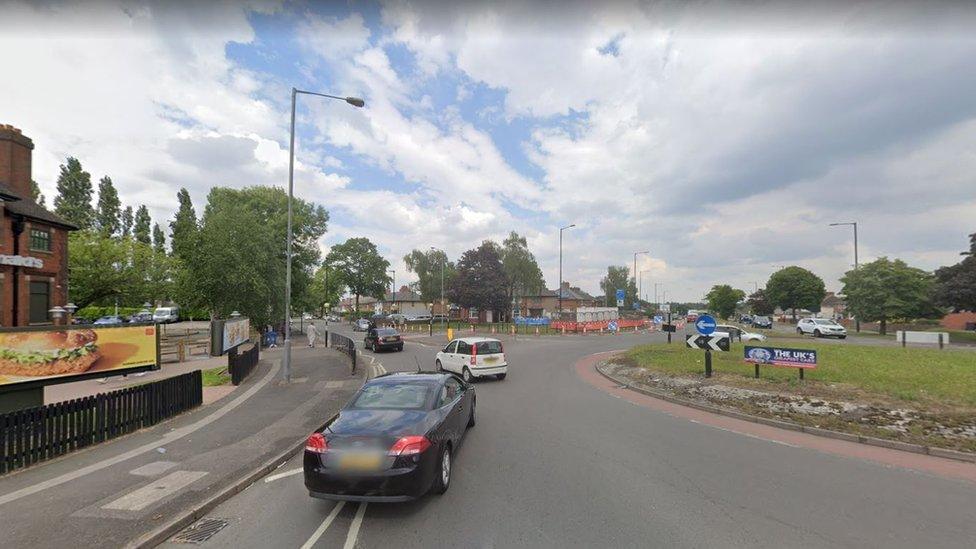
- Published12 May 2022
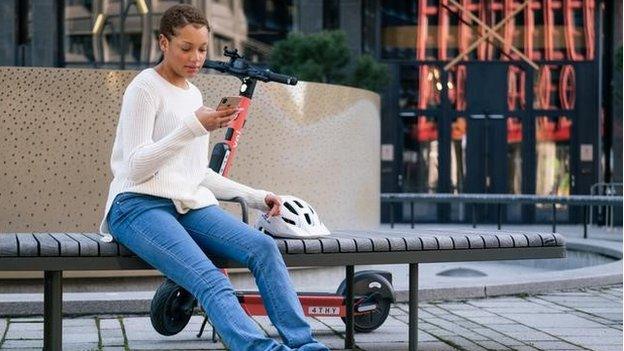
- Published23 December 2021

- Published25 June 2021
